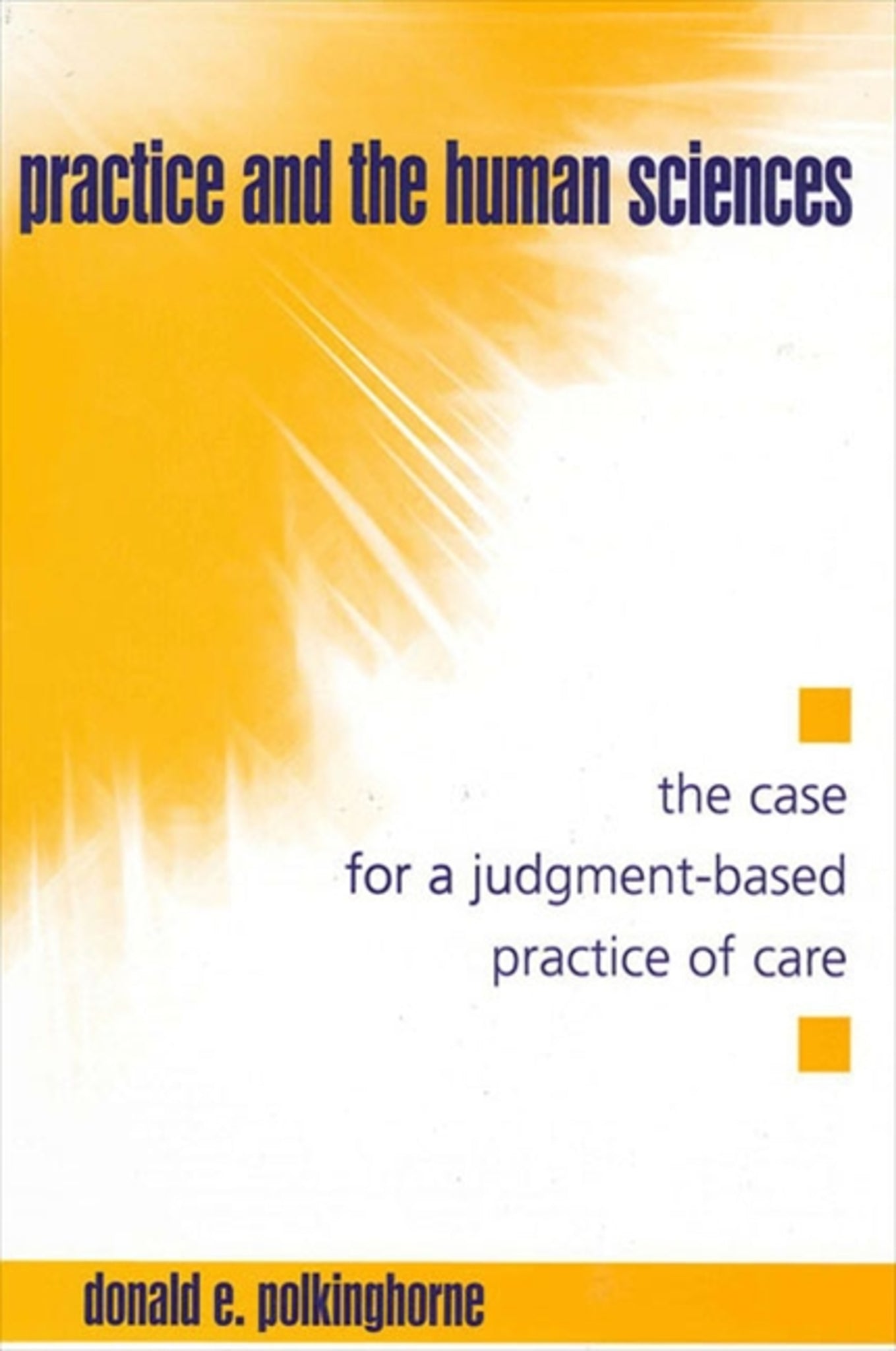We're sorry. An error has occurred
Please cancel or retry.
Practice and the Human Sciences

Some error occured while loading the Quick View. Please close the Quick View and try reloading the page.
Couldn't load pickup availability
- Format:
-
02 August 2004

Argues that the technical model of practice has limited applicability for the practices of care (teaching, nursing, social work, and psychotherapy).
Teachers, nurses, psychotherapists, and other practitioners of care are under pressure to substitute specific, prescribed techniques in place of using their own judgment. Donald E. Polkinghorne assembles the case for the return to judgment-based practice for the professions that engage in direct person-to-person interaction with those they serve. Set in the larger context of the technification of society, Polkinghorne draws from Weber, Heidegger, Ihde, Bourdieu, de Certeau, and other philosophers to trace the advancing power of the technological worldview in Western culture and uses Aristotle, Dewey, and Gadamer to help make his case that we should be doing things very differently.


Preface
1. INTRODUCTION
The Technical-Judgment Practice of Controversy
Understanding Practice
2. TECHNOLOGY AND TECHNIFICATION
Techne
The Effect of Technology on Culture
Technology and Technical-Rational Practice
Technical-Rational Practice
Critique of the Technified Culture
3. PRACTICE AND CULTURE
Two-Term Explanations of Practice
Practice Theory
Summary
4. THE REALMS OF PRACTICE
Form and Flux
The Realms of Practice
The Practitioner
The Human Sciences and Practical Knowing
5. TECHNE AND PHRONESIS
The Fusion of Horizons
Techne (Science) versus Tuche (Luck)
Plato's Science of Living
Aristotle's Phronesis and Practical Action
6. EMBODIED REASONING
Epstein's Experiential Thinking
Lakoff and Johnson's Embodied Rationality
Gendlin's Experiencing
Damasio's Embodied-Enactive Model
Conclusion
7. REFLECTIVE UNDERSTANDING AND PRACTITIONER JUDGMENT
Practice and the Background
Reflective-Understanding Reasoning
Conclusion
8. A CASE STUDY: PSYCHOTHERAPY
The First Phase: 1890–1950
The Second Phase: 1950–1990
The Third Phase: 1990–the Present
References
Index



